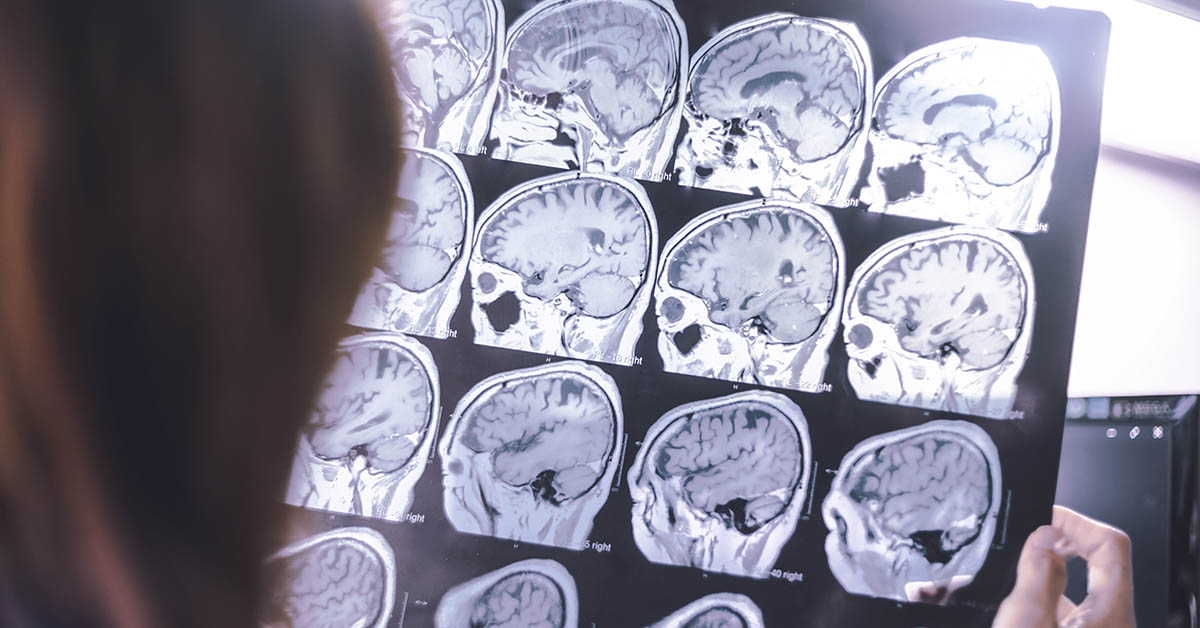Dementia is a disease that we typically only associate with older adults. Sadly, in very rare cases, it can also affect children. This three-year-old little girl in the UK is suffering from childhood dementia. Her parents are now trying to raise awareness and funds for this extremely rare disease.
Little Girl Suffering From Childhood Dementia
Just a couple of months after walking down the aisle at her parent’s wedding, three-year-old Florence Swaffield from the UK received a rare and devastating diagnosis: Childhood dementia. The scientific name for the illness is CLN2 Batten’s disease. Florence is slowly losing her ability to walk, talk, eat, and drink independently. She has already forgotten most of the words that she has learned. Currently, there is no cure, and the life expectancy for the illness ranges from six to 12 years. (1)
Her mom Phoebe says that she knew that something was wrong for a long time, but getting a diagnosis was a difficult battle. She has worried that something was wrong with Florence since she was born. Florence slept a lot more than she should, made hacking noises, and would refuse to eat. If Phoebe encouraged Florence to feed, she would usually projectile vomit within the hour. Still, doctors wouldn’t take her concerns seriously, instead constantly reassuring her that her baby was fine.
After the wedding, Phoebe and her husband noticed that things with Florence were worsening. She was having trouble walking and eating. She was also sleeping a lot – up to 22 hours a day. They continued to take her to the doctor’s in hopes that they could get some answers.
“We were trying to make the doctors understand that Florence was not like other children her age, but I just felt really unheard and out of control,” Phoebe said. “I knew something was wrong but nobody was willing to listen.”
Eventually doctors diagnosed Florence with CLN2 Batten’s disease in combination with Ververi-Brady Syndrome, a condition characterized by mild developmental and speech delay. Currently, Florence is the only person in the world with both of these mutations occurring simultaneously. Her parents took a gene test and found that each was carrying the CLN2 gene, which they, unfortunately, passed along to their daughter.
What Is Childhood Dementia?
Childhood dementia results from progressive brain damage caused by over 70 different genetic disorders. The symptoms of childhood dementia are the same as those of adult dementia: Confusion, loss of memory, loss of speech, and more. While the disease can occur as early as in babies or not until the child is in adolescence, the outcome is the same. They will slowly lose the skills they have learned over time, and the brain will progressively lose the ability to keep their body functioning properly and, eventually, keep the body alive. (2)
The disease is extremely rare. The Swaffields discovered that it affects just 50 people in the UK currently. It is so rare that most of the doctor’s that Florence has been to have had to Google it to learn more about it. Getting a diagnosis is tricky, as well, because the initial symptoms are non-specific and are related to many other neurological disorders.
Childhood Dementia and Childhood Alzheimer’s Are Not The Same
Childhood dementia is not the same as childhood Alzheimer’s disease, though it shares many similar signs and symptoms. Childhood dementia is caused by a group of conditions called neuronal ceroid lipofuscinosis (NCL). When a child has NCL, proteins and lipids build up in their body and lead to decline. Childhood Alzheimer’s is a term used to refer to two different diseases that cause children to have memory loss and other symptoms commonly associated with Alzheimer’s disease. Both diseases are what’s known as lysosomal storage disorders. When a child has one of these genetic diseases the lysosomes of their cells don’t function properly. (3)
Gene Therapy The Only Hope
For little Florence, her only hope is gene therapy, which has not yet been approved by the FDA. The family has set up a GoFundMe page to raise money for them to afford these treatments because they are not covered by their insurance. In the meantime, the family is preparing their home to support Florence as she loses motor control and mobility.
“We’ll need wet rooms, ramps and everything to be downstairs,” Phoebe said. “There’s pioneering technology coming out all the time and we want to be able to give Florence the best quality of life we can.”
Keep Reading: ‘My Daughter’s Rare Disease Was A Mystery For Years. Here’s How We Finally Got A Diagnosis’
Sources
- “I’m losing my little girl to dementia.” NY Post. Ellie Cambridge. April 18, 2022.
- “What is childhood dementia? ” Childhood Dementia
- “Childhood Alzheimer’s: Understanding This Rare Condition.” Healthline. S. Behring. March 22, 2021

